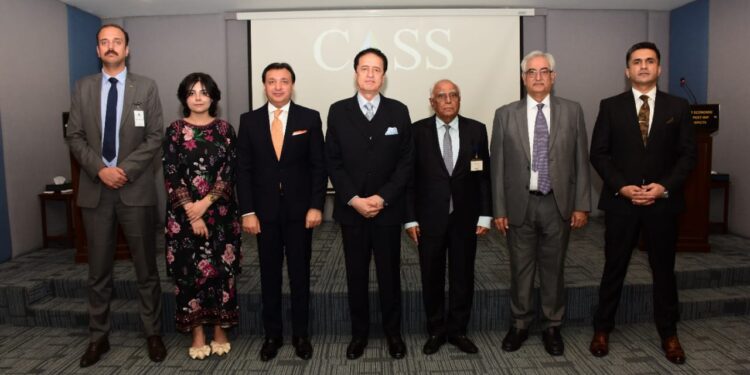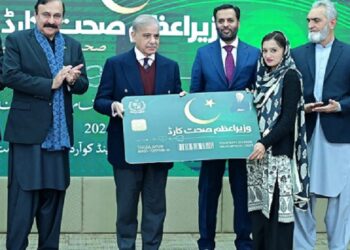The Centre for Aerospace and Security Studies (CASS), Lahore, organised a seminar titled ” Charting the Resilient Economic Future for Pakistan Post-IMF: Challenges and Prospects” on 12 December 2024. The event provided the platform for eminent economists and intellectuals to address the multifaceted economic challenges that confront Pakistan and discuss how Pakistan can attain future economic resilience. Ms Nida Khattak, a researcher at CASS Lahore, commenced the seminar with her introductory remarks.
The keynote speaker, Dr Rashid Amjad, director at Graduate Institute of Development Studies (GIDS), stated that the fundamental problem of Pakistan’s economy is that when growth increases; balance of payments crisis emerges. He highlighted that an educated youth, empowered women, efficient provinces, and Pakistani diaspora will be the drivers of economic growth in Pakistan. Dr Khaqan Najeeb, former advisor at the Ministry of Finance, emphasised human resource and skill development as the missing link in Pakistan’s economic revival strategy. He advocated for enhanced agricultural productivity, reduced states’ economic footprints, and export-oriented growth as ways to move beyond the IMF. Mr Almas Hyder, Chairman of SPEL, said that the path to resilience requires embracing value addition and export competitiveness. Investing in education, infrastructure, and innovation is a precondition for Pakistan’s prosperous, equitable, and sustainable economy.
In his concluding remarks, Air Marshal Asim Suleiman (Retd), President of CASS Lahore, emphasised that IMF support has been crucial; however, it should be viewed as a temporary and transitional phase. Moving forward, Pakistan must focus on reducing its dependence on external financial assistance through comprehensive structural reforms. He added that diversification is the way forward to set Pakistan’s economic trajectory in the right direction, as it aligns with global economic realities.
The interactive session generated insightful discussions. The seminar stressed the complexities facing Pakistan’s economic landscape and highlighted opportunities for economic reforms and prosperity, aiming not only for economic resilience but also sustainable economic growth.

























